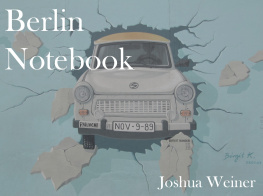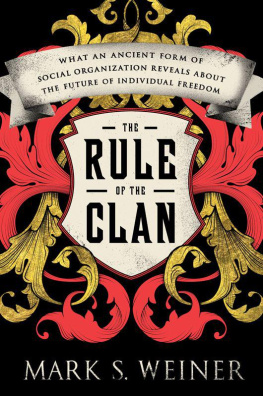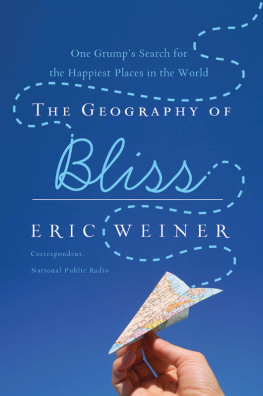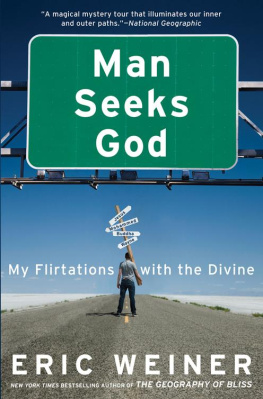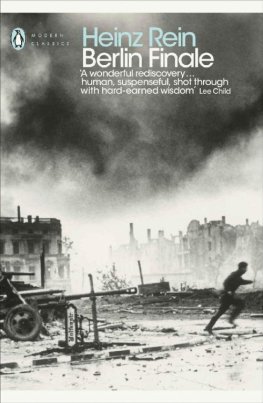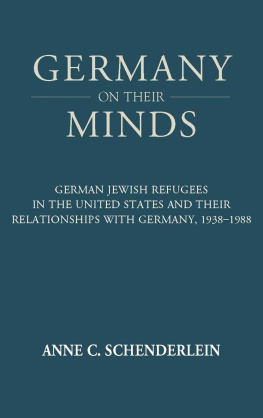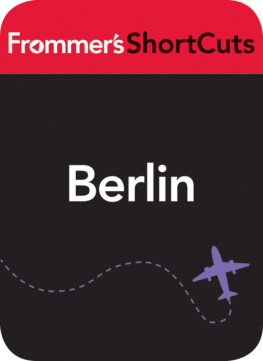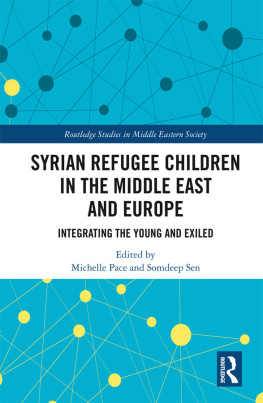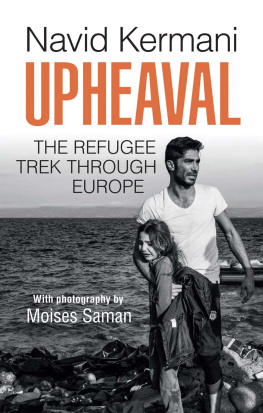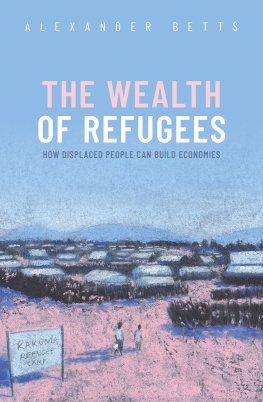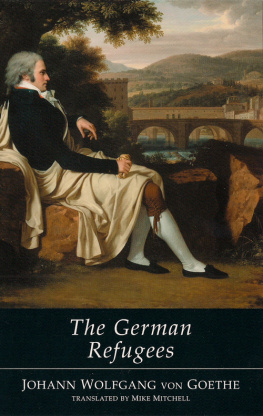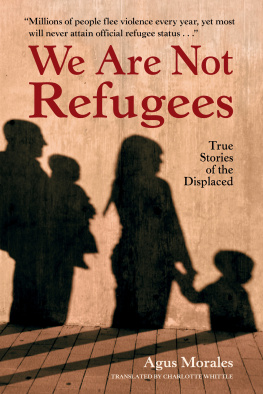Table of Contents
BERLIN NOTEBOOK
WHERE ARE THE REFUGEES?
by
Joshua Weiner
Los Angeles Review of Books
Los Angeles Review of Books
Los Angeles, California
2016 by Los Angeles Review of Books
First edition
All rights reserved. No part of this book may be reproduced in any form or by any electronic or mechanical means (including photocopying, recording, or information storage and retrieval) without permission in writing from the publisher.
The Los Angeles Review of Books is a 501(c)(3) nonprofit organization. The authors procedes from sales of this book will be donated to the International Rescue Committee.

FOREWORD
Berlin Notebook: Where Are the Refugees? started as a straightforward journal transcription of my experiences in Berlin during October 2015, a time when the influx of refugees from Syria, Iraq, Afghanistan, Lebanon, and Libya into Germany and the rest of Europe was peaking to become the largest since World War II. The Notebook posted daily at the Los Angeles Review of Books throughout February 2016. But by then, the situation had changed. A terrorist attack in Paris, in November 2015, left 130 dead, many more wounded, and shook the world with another careful coordination of simultaneous strikes against multiple targets. In January 2016, over New Years Eve, hundreds of women were sexually assaulted in the crowded public squares of Kln by asylum seekers believed to be from North Africa. Then, in early March, two Afghan asylum seekers sexually molested two teenage girls at an aquatics center in Northern Germany, an incident that repeated similar attacks at the same location two years earlier. A shadow had passed over Willkommenskultur. The situation has become very hard here, a friend in Berlin wrote in an email.
I decided to return to Berlin in April to see for myself. A week before I got there, while I was traveling in Spain with my family, multiple timed bombings at the Brussels airport reverberated across Europe. We talked about it in lowered voices with our friends in the public markets of Barcelona. The day this spring that I arrived in Berlin, the first refugees were being sent back to Turkey from Greece as part of the deal the EU had struck with Turkey to control migrant movement. Borders had closed, and were closing. At the same time, I discovered more programs in place in Germany to help with integration, some quite inventive; the subject of refugees had also become hot, with at least a dozen new titles stacked on bookstore tables throughout the city. The refugee crisis had itself migrated from the political arena to the larger realm of culture. The refugees were now being sheltered all over the city in hotels and public buildings; everyone could answer the question, where are the refugees? Why, down the street, around the corner, not far from here. The two weeks in Berlin in April resulted in new materialinterviews, travels, little personal social experimentsthat Ive added to update the Notebook for its republication as an e-book. It maintains the form of a chronology.
I have tried to be as faithful as possible in my reporting of interviews. I have not tried to verify the facts that people presented (when they told them to me); I have tried, rather, to convey the experience of talking with them, what it was like to be there, and to listen, to ask. The form of the interviews may seem to move like the streaming metaphor one finds everywhere in use to describe the movement of people across national borders.
Washington, DC
April 13, 2016
ACKNOWLEDGMENTS
First thanks go to the refugees seeking asylum in Germany, most of whom requested that I not use their real names, and who talked with me, humored my naivet, dispelled some of my ignorance, and disabused me of preconceptions.
Thanks to Barbara Ggold and the IES Abroad Institute for a research associate fellowship that brought me to Berlin in October 2015; and to the faculty at the Institut fr Anglistik und Amerikanistik, Humboldt Universitt zu Berlin. The Berlin Notebook was conceived of, researched, written, and published with support of a John Simon Guggenheim Foundation fellowship, and additional funding from the English Department at the University of Maryland, College Park. Thanks to those institutions for their support.
Ive had the good fortune to work with stellar editors at the Los Angeles Review of Books who supported this project from the beginning: Gabrielle Calvocoressi was the first to express enthusiasm, and kept me going throughout October with her encouragement; Tom Lutz has stood firmly behind me the whole time; and Michael Ursells skillful, sympathetic editing made the Notebook readable and sharp. My thanks to all of them.
Among others I interviewed, Id especially like to thank the poets Lian Yang, Alistair Noon, and Alexander Booth; artist Susanne Gerber; film-maker Karsten Eckardt; Rabbi Walter Rothschild; Cantor Jalda Rebling and Anna Adam of Ohel Hachidusch; Joseph Aish of Baghdad; the members of Freygang Band; Razan Nassreddine of the Berliner Multaka: Treffpunkt Projekt; photographer Alexandra Kinga Fekete; Syrian journalist Yasmine Merei; and all those volunteers working with the relief organization, Moabit Hilft.
Thanks also to Rosmarie Waldroppoet, translator, editor, and publisher extrordinairefor permission to print her translation of Gehard Rhms poem, europe 1954 (I My Feet: Poems & Constellations, Dichten = series, number 7, Burning Deck, 2004).
I am indebtedverschuldet und verpflichtetto Linda Parshall for help with the German. Any errors are due to my ignorance and inattention. (When she trained her hawk-eye on the typescript, the English also improved).
For six weeks in October 2015 and April 2016, Sarah Blake held down the fort in DC while I was in Germany. Her novelists attention to the typescript pushed it further in the right direction. There are no thanks equal to my gratitude and love.
Parts of the Berlin Notebook have been published in Tikkun (www.tikkun.org), B O D Y (www.bodyliterature.com), and The Threepenny Review (www.threepennyreview.com).
ICH BIN EIN BERLINER?
Thursday, October 1, 2015
Getting into Germany couldnt have been easier. I said good morning to the blank-faced woman at Passport Control; she found a blank page in my passport, stamped it; I pulled my bag from the conveyor belt and walked into the heavily policed shopping mall of Flughafen Tegel International. My eyes were dry and itchy from staying up all night on the plane reading Patrick Cockburns The Rise of the Islamic State and trying to learn a few words of Arabic with my Nemo phone app. Marhaban. Hello . Naam. Yes. Herzliches Willkommen. No, wrong language. Id hear the phrase soon from the folks at the Institute sponsoring my trip; how many others entering the country today would hear likewise?
Stepping outside, the airport shade felt chilly; the temperature would be dipping lower with every few days, and people living on the street would wait longer for the morning sun to warm them. October would bring rain. Sickness would follow. I stepped back through the sliding glass to don my German kitschy Jack Wolfskin fleece, with a giant paw print stitched between the shoulders. Ich bin ein Berliner? Hardly, but I was happy to be back for the month.

